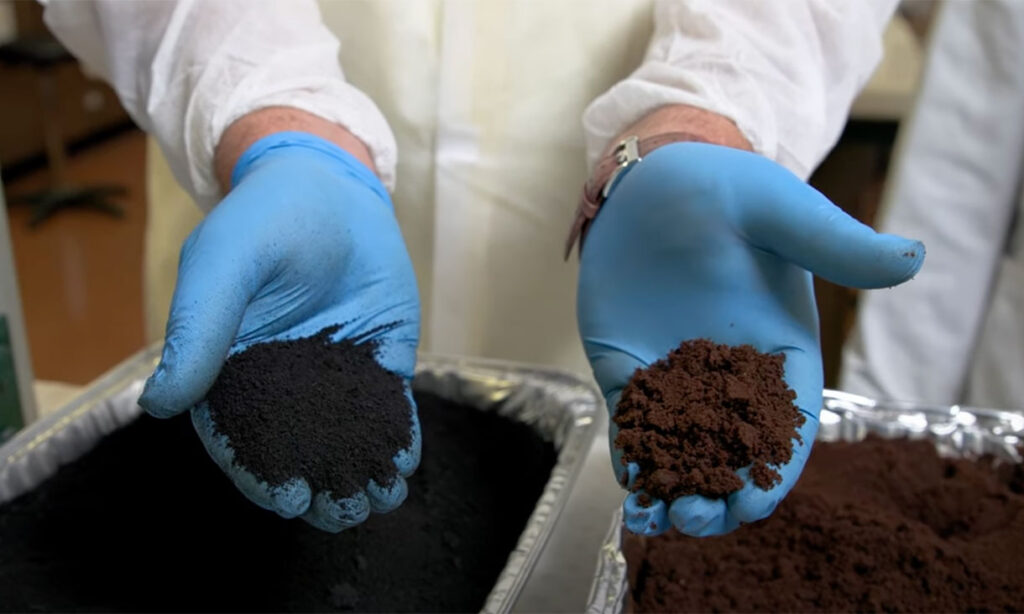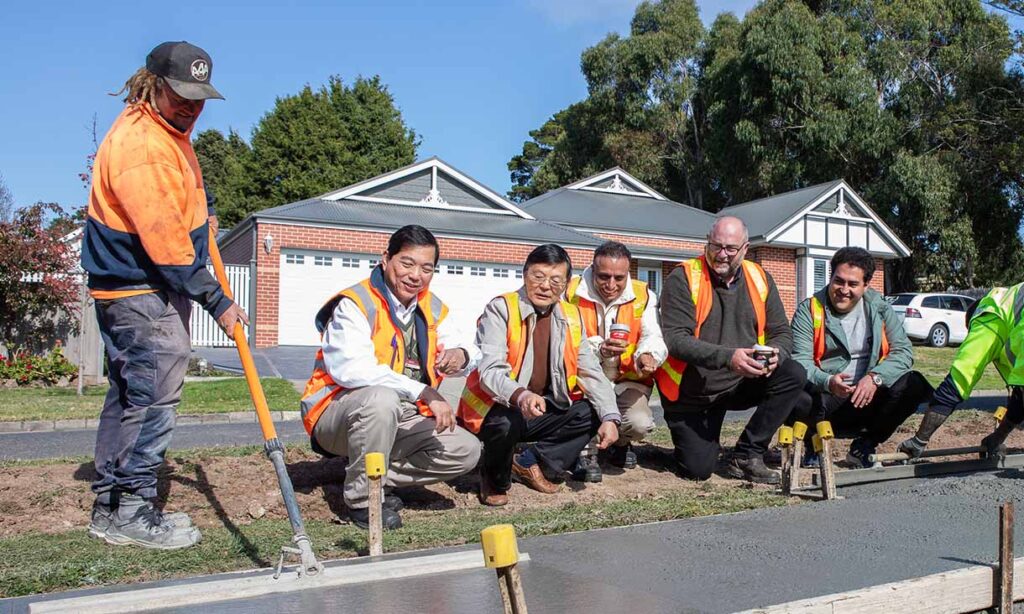
An innovative technique for turning coffee grounds into construction material has won an award at Universities Australia’s Shaping Australia Awards in the Problem Solver category, after gaining the most votes from the public.
Rajeev Roychand, Professor Jie Li, associate professor Shannon Kilmartin-Lynch, Mohammad Saberian, Professor Chun Qing Li and Professor Guomin (Kevin) Zhang’s innovation strengthens concrete by 30 per cent using biochar made from spent coffee grounds to give the drink-additive a ‘double shot’ at life and reduce waste going to landfill. The coffee biochar can replace a portion of the sand that’s used to make concrete.

The invention tackles major sustainability challenges. Australia generates around 75,000 tonnes of ground coffee waste annually, contributing to 6.87 million tonnes of organic waste in landfills, which account for three per cent of the nation’s greenhouse gas emissions.
‘Winning this national award is outstanding recognition of our vision to transform waste materials into valuable construction resources,’ said Roychand, from RMIT’s School of Engineering. ‘What began as research into coffee grounds has now evolved into a comprehensive programme converting various types of organic waste into biochar that could help reshape the environmental footprint of the built environment.’
Within a year, the team progressed from the lab to real-world applications with industry and government partners, including a world-first footpath trial in Gisborne (see below). Their coffee concrete is also being used in Victoria’s Big Build projects, and is displayed in Germany’s prestigious Futurium museum as an innovative material for a sustainable future.

Li said their research advanced sustainable construction, enabling the transformation of diverse organic waste streams into high-performance construction materials. ‘This Australian-led innovation demonstrates how we can pioneer solutions for global environmental challenges,’ he said.
Kilmartin-Lynch, a Taungurung man from Mansfield in Victoria, was at RMIT when the School of Engineering team conducted this research and is now at Monash University. ‘By integrating the circular economy with advanced materials engineering, we’re creating new pathways for reducing carbon emissions while enhancing structural performance,’ he said.
Saberian said their innovation came at a crucial time, with global sand demand projected to rise by 45 per cent over the next four decades. ‘We’re not only addressing waste management but also helping preserve this increasingly scarce natural resource that is vital for construction worldwide,’ he said.
Following the success of the research, and the extensive media coverage it received, the team has expanded its collaboration with industry leaders both locally and internationally. RMIT’s partnership with Ambiolock in Australia and C-Green in Sweden emerged as a key step in advancing high-durability, low-carbon biochar-based materials for sustainable construction.
Through these partnerships, the team’s research continues to expand its global impact, demonstrating how innovative waste-to-resource solutions can be integrated into mainstream infrastructure and construction practices worldwide. RMIT is engaged with a commercialisation partner to translate the team’s innovation into a commercial reality. The partner is in the process of building the business case with key stakeholders and supply chain partners in the construction and agriculture sectors that would potentially benefit from using biochar products or play critical roles in bringing the technology to market.
The research has been published in the Journal of Cleaner Production.


